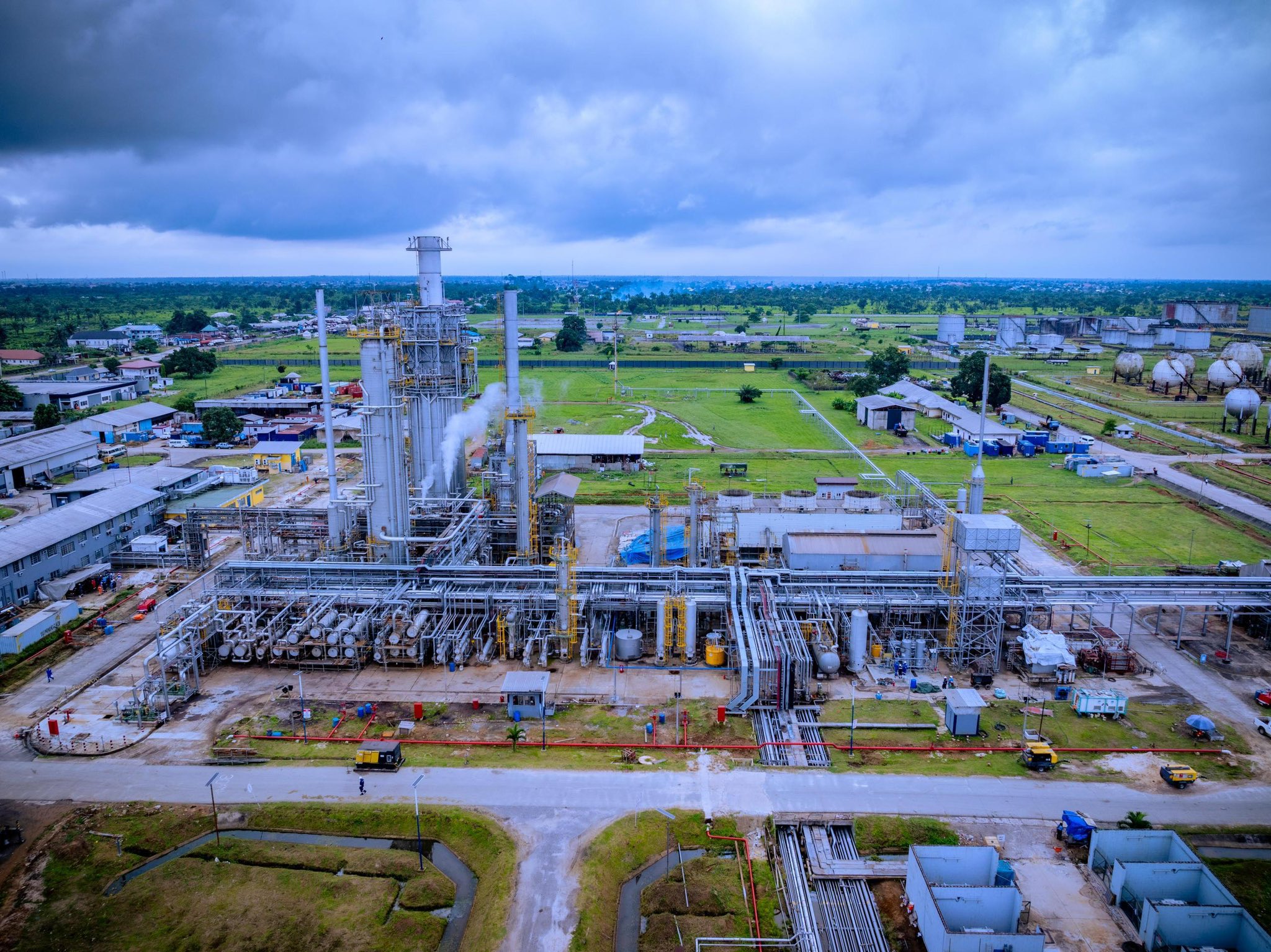President Tinubu has ordered NNPCL to reactivate the Warri and Kaduna plants.
NewsOnline Nigeria reports that President Bola Tinubu has commended the Nigeria National Petroleum Company Limited (NNPCL) for successfully reviving the Port Harcourt refinery, which commenced petroleum product loading today, November 26, 2024.
This Nigeria news platform understands that Tinubu also urged the firm to expedite the scheduled reactivation of the second Port Harcourt refinery and the Warri and Kaduna refineries.
ALSO: President Tinubu Rejects Son, Seyi’s Lagos Governorship Ambition
Mr. Bayo Onanuga, the Special Adviser to the president on Information and Strategy made this known in a statement released today.
“President Bola Tinubu extends his heartfelt congratulations to the Nigeria National Petroleum Company Limited (NNPCL) on the successful revitalization of the Port Harcourt refinery, marked by the official commencement of petroleum product loading on November 26, 2024,” the statement read.
This marks a significant step towards reducing Nigeria’s dependence on imported refined petroleum products.
The President attributed the achievement to the groundwork laid by former President Muhammadu Buhari, who initiated the $1.5 billion comprehensive rehabilitation project.
Tinubu also thanked the African Export-Import Bank for financing the endeavor, and lauded NNPCL’s Group CEO, Mele Kyari, for his strategic leadership in overcoming challenges to realize this milestone.
“President Tinubu commends the leadership of NNPC Limited’s Group Chief Executive Officer, Mr. Mele Kyari, whose unwavering dedication and commitment were instrumental in overcoming challenges to achieve this milestone.”

Expanding domestic refining capacity
- President Tinubu directed NNPCL to expedite the reactivation of other key refineries in Warri and Kaduna. Combined with private refineries, these efforts aim to boost local production capacity and transform Nigeria into a regional energy hub.
- The move is aligned with Tinubu’s Renewed Hope Agenda, which seeks energy security, export growth, and the restoration of Nigeria’s refining capacity.
“With the successful revival of the Port Harcourt refinery, President Tinubu urges NNPC Limited to expedite the scheduled reactivation of both the second Port Harcourt refinery and the Warri and Kaduna refineries.” the statement read.
- The Port Harcourt refinery, with a capacity to produce up to 12 million liters of petrol daily, is expected to operate independently at prevailing market rates, helping offset the country’s reliance on fuel imports.
- The Warri and Kaduna plants are anticipated to be operational by late 2025 as part of broader plans to enhance the country’s refining capacity.
- Tinubu called on Nigerians and institutions to prioritize integrity and accountability in executing national projects, emphasizing the importance of earning public trust through patience and responsible management.
What you should know
Despite being an oil-rich nation, Nigeria has relied heavily on importing petroleum products, including fuel. The country reportedly spends over $2 billion annually on petrol imports alone.
- With the operationalization of both the Dangote Refinery and state-owned facilities, Nigeria aims to become a net exporter of petroleum products by 2025.
- The Dangote Refinery, with a capacity of 650,000 barrels per day, is expected to meet local demand while exporting to neighboring countries.
- For now, the Port Harcourt Refinery, operating at its current capacity, will primarily cater to domestic needs. Despite being an oil-rich nation, Nigeria has relied heavily on importing petroleum products, including fuel. The country reportedly spends over $2 billion annually on petrol imports alone.
- With the operationalization of both the Dangote Refinery and state-owned facilities, Nigeria aims to become a net exporter of petroleum products by 2025.
The Dangote Refinery, with a capacity of 650,000 barrels per day, is expected to meet local demand while exporting to neighboring countries.
For now, the Port Harcourt Refinery, operating at its current capacity, will primarily cater to domestic needs.














